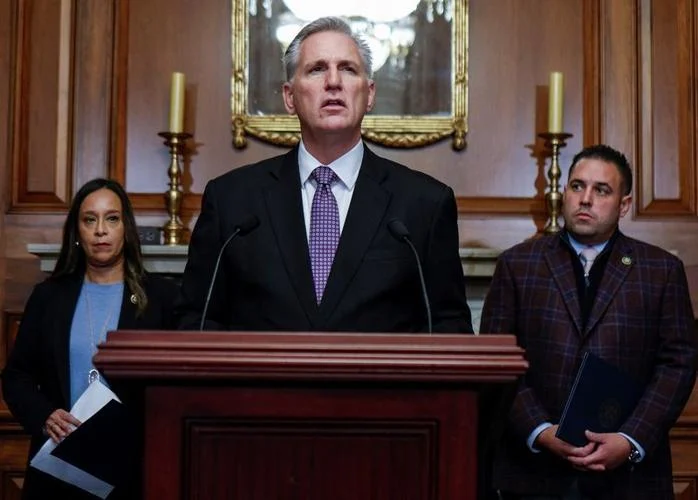The United States’ Congress yesterday passed a temporary funding bill to keep the federal government running until mid-November and avert a costly government shutdown by leaving out aid to war-torn Ukraine requested by President Joe Biden.
The House of Representatives voted 335-91 late on Saturday to fund the government for a further 45 days, with 209 Democrats supporting the measure compared with 126 Republicans.
The Democratic-majority Senate then voted 88-9 in favour of the measure just three hours before the midnight Saturday deadline to avoid what would have been the federal government’s fourth partial shutdown in a decade.
The move marked a profound shift from earlier in the week when a shutdown, which would have forced the closure of a range of public services and that leave most of the government’s 4 million employees unpaid, looked all but inevitable.
The vote will ensure the government is funded until November 17, and also increases federal disaster assistance by $16 billion.
“Tonight, bipartisan majorities in the House and Senate voted to keep the government open, preventing an unnecessary crisis that would have inflicted needless pain on millions of hardworking Americans,” Biden said in a statement.
But he berated House Speaker Kevin McCarthy and the House Republicans for reneging on spending levels agreed with the White House months ago — a major reason for the shutdown near-miss — and for stripping out support for Ukraine.
“I fully expect the speaker will keep his commitment to the people of Ukraine and secure passage of the support needed to help Ukraine at this critical moment,” said the president, who is set to sign the measure into law before the 12.01am local time (04:01 GMT) deadline.
The stopgap measure stripping out Ukraine aid was pitched by McCarthy just hours ahead of the deadline, but but the reprieve may be short lived.
Congress will again need to fund the government in coming weeks risking a crisis at a time when views are hardening, particularly among hardline Republicans who defied their own party leadership to scupper various temporary funding proposals as they pressed for deep spending cuts.
The group of 21 had threatened to remove McCarthy as speaker if a stopgap measure they opposed was passed with Democrat support, and many in Washington warn the speaker may have to fight for his job in the coming weeks.
One of the hard right group, Lauren Boebert, was clearly unhappy with the outcome, but declined to say what that might mean for McCarthy’s future.
“There are too many members here who are comfortable doing things the way they’ve been done since the mid ’90s,” she told reporters. “And that’s why we’re sitting at $33 trillion in debt.”
McCarthy dismissed concerns that hardline Republicans could try to remove him as leader.
“I want to be the adult in the room, go ahead and try,” McCarthy told reporters. “And you know what? If I have to risk my job for standing up for the American public, I will do that.”
Arming and funding Ukraine in its war against the Russian invasion has been a key policy initiative for Biden, while the stopgap is only temporary, it does raise questions over the political viability of continuing the multibillion-dollar flow of assistance.
McCarthy said Russia’s invasion was “horrendous,” but insisted there could be “no blank cheque” for Ukraine.
“I have a real concern of what’s going to happen long term, but I don’t want to waste any money,” he said.
Last week, Ukrainian President Volodymyr Zelenskyy visited Capitol Hill to try to convince the slowly growing number of sceptical Republican members of Congress not to give up on his country.
